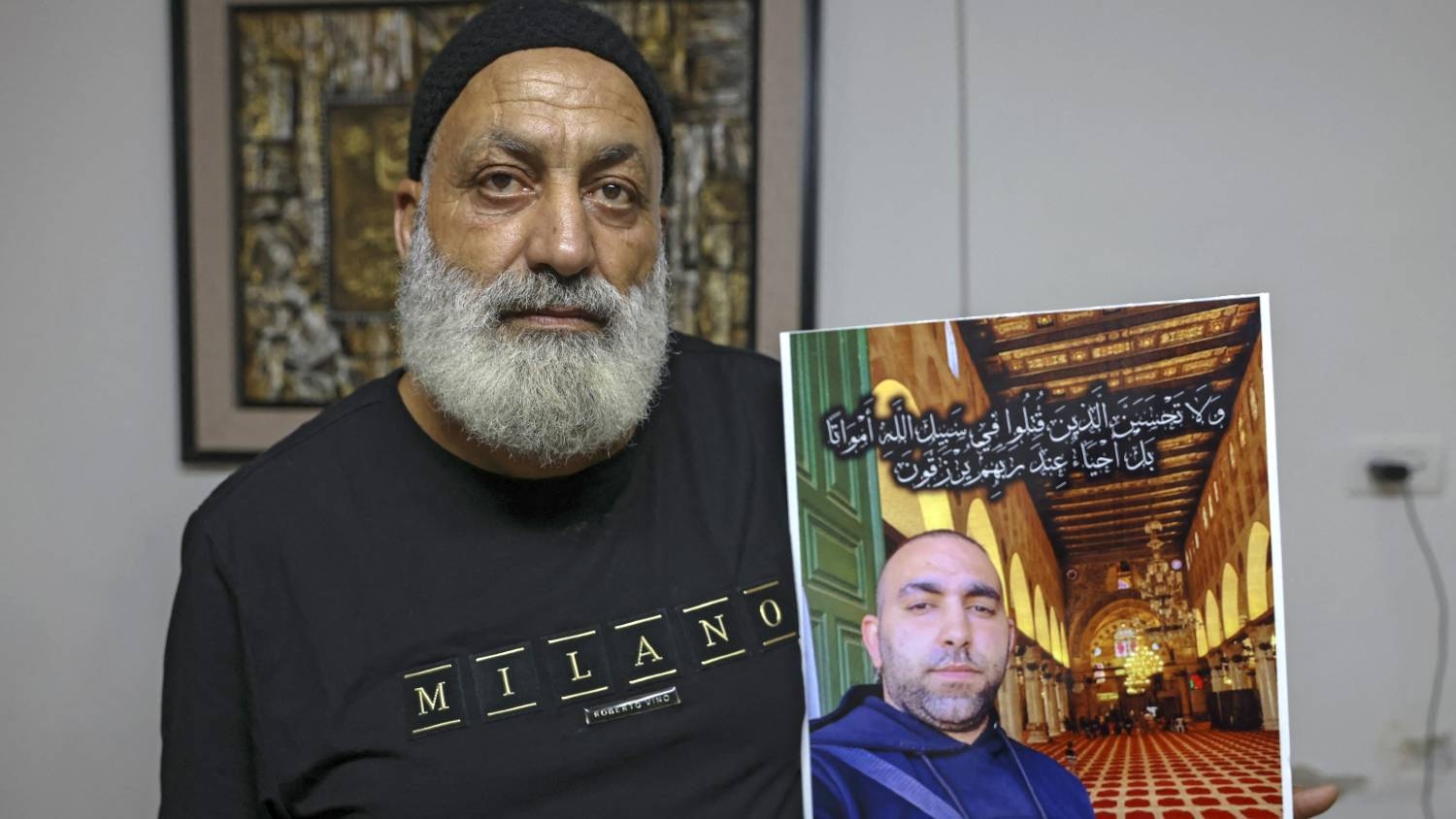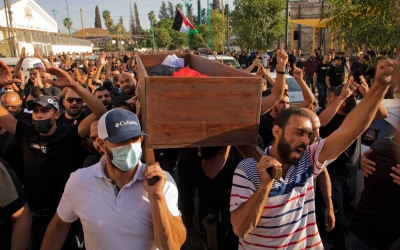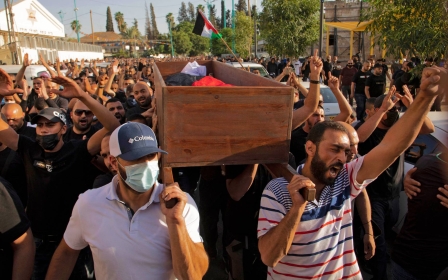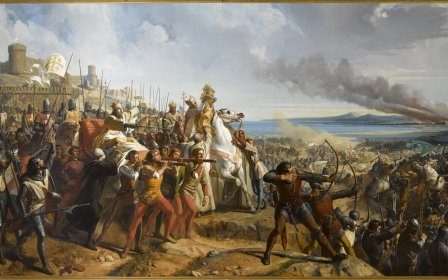Palestinians in Lod warn acquittal of Israelis in killing paves way for 'fascism'

Palestinian citizens of Israel have denounced the Israeli public attorney's decision to acquit five Jewish-Israeli suspects on Thursday in the killing of Moussa Hassouna.
Hassouna, a 31-year-old Palestinian citizen of Israel, was killed in the mixed city of Lod during clashes between Palestinians and Israeli far-right activists on 10 May, amid tensions across Israel and the occupied Palestinian territories over Israeli attacks on al-Aqsa mosque and East Jerusalem's Sheikh Jarrah.
Israel arrested four Jewish-Israeli suspects in the wake of Hassouna's death; however, they were released from custody on 13 May, less than three days later.
Israel's central district attorney's office said on Thursday that it was closing the investigation into Hassouna's killing based on the suspects' accounts, claiming that they opened fire in "self-defence," and a lack of evidence.
A ballistic analysis of the shooting and the scene discounted the possibility that four of the suspects had opened fire at Hassouna.
The forensics found that the fifth suspect had indeed shot his weapon in the area during the clashes but failed to confirm whether he was the one who killed the Palestinian man.
Five months on, Israeli police are not currently investigating any other suspects in the case.
Another Palestinian citizen of Israel, Mohammad Kiwan, was also killed by Israeli fire during May's unrest, in the village of Umm al-Fahm in northern Israel.
A Palestinian public committee in Lod - also known as al-Lidd or Lydda - warned in a statement that the public attorney's decision "set the stage for uncontrolled Israeli fascism that targets people based on their religion, nationality, and blood".
"This unjust decision gives legitimacy to the crimes of Jewish terrorist militias and encourages them to kill and abuse Arabs under the protection of the official apparatus of the state," the statement added.
'This unjust decision gives legitimacy to the crimes of Jewish terrorist militias and encourages them to kill and abuse Arabs'
- Lod public committee
"From day one, the Israeli prosecution was not serious about investigating the killing of Hassouna, but it aimed to acquit the Jewish terrorist criminals and for them to evade punishment," Khaled Zabarqa, a lawyer and a member of Lod's public committee, told Middle East Eye.
Zabarqa accused said Israeli ministers, Knesset members and officials in Lod of pushing for the suspects' release.
"The decision sets another dangerous precedent for Palestinians," Zabarqa added. "The state of Israel, with its police, intelligence and courts, is sending a message to those terrorist Jewish militias: 'Go kill, attack and open fire on whomever you want, and we will protect you and help you'."
Zabarqa, who visited Hassouna's family on Thursday morning, said the court's decision had shattered them and left them feeling "like their son was killed again".
Malek Hassouna, Moussa's father, told Israel's N12 channel that the family had anticipated the investigation wouldn't achieve accountability, adding that they are discussing filing a legal case in the International Criminal Court.
Palestinian citizens of Israel, who make up 20 percent of the country's population, are the descendants of those who remained in historic Palestine when most Palestinians were expelled or fled during the establishment of Israel in 1948, also known as the Nakba.
Often referred to in Israel as Arabs or Arab-Israelis, they face many discriminatory laws and policies impeding their access to education, housing and public services compared to their Jewish-Israeli counterparts.
Middle East Eye propose une couverture et une analyse indépendantes et incomparables du Moyen-Orient, de l’Afrique du Nord et d’autres régions du monde. Pour en savoir plus sur la reprise de ce contenu et les frais qui s’appliquent, veuillez remplir ce formulaire [en anglais]. Pour en savoir plus sur MEE, cliquez ici [en anglais].





